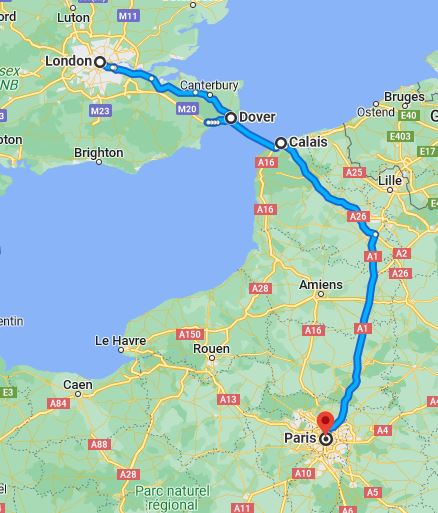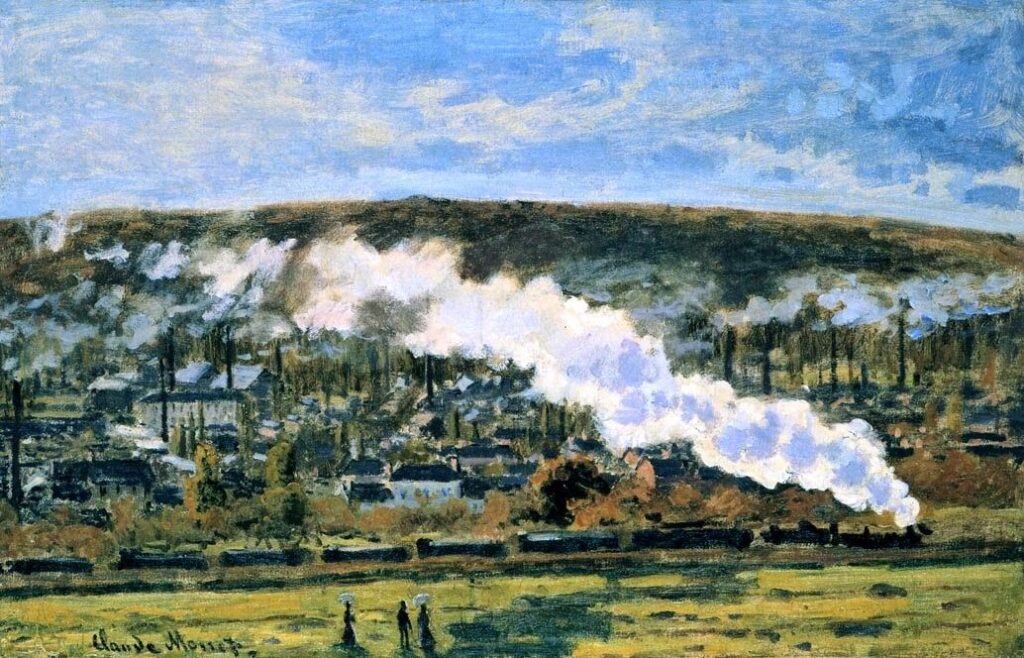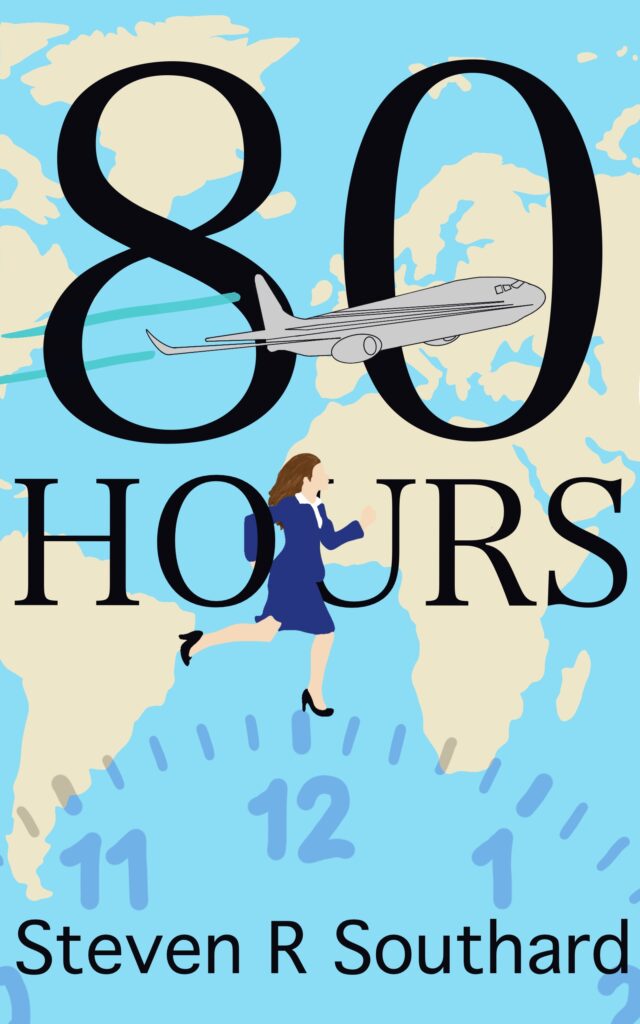Welcome to Paris! Today we’re continuing our trip Around the World in Eighty Days, following the fictional route taken by Phileas Fogg 150 years ago. I hope you remembered to turn off the heat in your room back in London. Passepartout forgot that.
He and Fogg left London the night before, took a train to Dover, a steamship to Calais, and a train to the French capital. Jules Verne spent few words describing this leg of the journey. Little wonder, since his readers knew this portion of the route well. Verne focused on character development here and introduced a major subplot, the pursuit of a bank robber by Detective Fix of Scotland Yard.
Passepartout regretted not spending more time in Paris, capital of his native country. He and Fogg rode in a carriage through the rain for an hour and forty minutes between two train stations.
At this point, Fogg had traversed some 294 miles, about 1.2% of the total distance, and he’d consumed 1.3% of his allotted time. On schedule with no mishaps or delays. The day before, when making the bet, he’d asserted, “The unforeseen does not exist.” So far, that had proved true.
In 1872, the population of Paris (minus outlying areas) numbered about 1.8 million. Adolphe Thiers served as the President of France, with Jules Armand Dufaure as President of the Council of Ministers.
Today, Paris claims a citizenry of 2.2 million. Emmanuel Macron is the President of the Republic, and the Prime Minister is Élisabeth Borne.
Had Fogg waited 150 years, he could have caught a flight directly from London to Paris with a flying time of one hour and twenty minutes. Truly, that unforeseen did not exist.
Trains, too, have changed. They no longer belch smoke like the one in Claude Monet’s 1872 painting, “The Train.” A traveler today can go by rail from London to Paris, through the Chunnel, in about two and a half hours.
If you’re enjoying this blog voyage, perhaps you’d like my latest story, 80 Hours, inspired by Verne’s tale, but updated to modern times. It’s available as an ebook from Apple Books, Barnes & Noble, Rakuten Kobo, Scribd, Tolino, Vivlio, and Amazon.
All aboard! Next stop—Turin. We should arrive there tomorrow, according to your conductor—
Poseidon’s Scribe





Well, this is interesting I say. I did a very similar thing in 2005 when October 2nd was the same day as in 1872 on the Jules Verne Forum and again in 2015 asking the question “How quickly could be travel in the modern era?” and came with an answer of around 40 days.
With regard to how to make Paris just a little more interesting, may I note that all the adaptions since have everything from being kidnapped (Around the World with Willy Fog) to being involved in an attempt to assinate the French Prime Minister (Tennant version 2021)
Thanks for the comment, Harry. That’s fascinating, how screen adaptations sought to make more of the Paris connection than Verne did. I’m sure he felt no need to explain Paris to his audience, but modern screenwriters must want to embellish it. I’m assuming your 40-day calculation restricts to ship and rail transport only. Someone traveling by plane, even to the major cities, would take only a couple of days.
That’s correct, no air travel allowed (just as it was in 1872). I can’t remember the exact timeline of events (mainly due to the Forum website having to close) but as it happens October 2nd is next on a Wednesday in 2024 so I might be tempted to do it again in real time via a similar methodlogy to you and see what I get then.
I hope you do that. I’d love to follow it along.